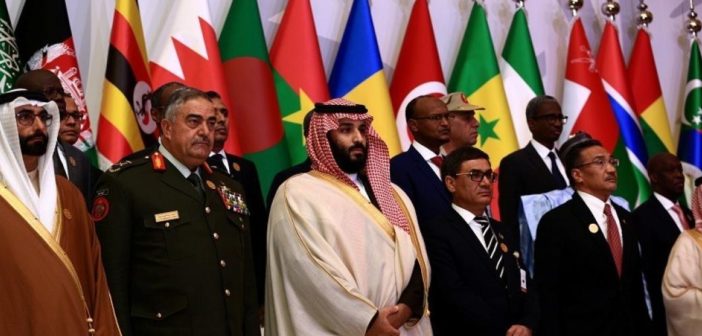
It has been a month since President Trump declared victory against ISIS in Syria and said US troops were returning home. It was only to be expected that the decision would lead to questions. Because this was an abrupt announcement made on Twitter apparently without adequate consultation not only with allies but also within the Trump administration. Thus, the past month witnessed twists and turns between Ankara and Washington regarding northeastern Syria.
Moreover, as statements from Moscow show Russia is unlikely to support Turkish-American understandings/arrangements there. The situation in Idlib also remains high on the Turkish-Russian agenda.
On November 10, 2016, Donald Trump said, “If Putin wants to go and knock the hell out of ISIS, I am all for it, 100 per cent, and I can’t understand how anybody would be against it.”
On January 7, 2017, President-elect Donald Trump in a tweet said, “Having a good relationship with Russia is a good thing, not a bad thing … both countries will, perhaps, work together to solve some of the many great and pressing problems and issues of the WORLD!”
Allegations of Russian meddling in US presidential election and the Mueller probe imposed strict limits on President Trump’s aspirations. Nonetheless, the fight against ISIS still offers an opportunity for cooperation. Four Americans were among nineteen people killed in Manbij on Wednesday in a suicide bombing that was claimed by the ISIS. This should help energize whatever cooperation Moscow and Washington have in Syria. Because major power struggle only helps ISIS’ cause.
Syria’s proxy war has been the Middle East’s principal challenge for the last eight years. Now, with many countries openly or tacitly acknowledging the defeat of the opposition, there appears to be an opportunity to move forward. However, Washington’s increasing focus on Iran can lead to a new escalation of tensions across the region.
Secretary Pompeo in his keynote speech in Cairo on January 10 called Iran “our common enemy” and vowed the US will use diplomacy and work with its partners to expel every last Iranian boot from Syria.
His remarks underlined once again Washington’s policy shift. What must have appalled many was his reference to President Obama as “another American” before proceeding to list his misjudgments.
In his Cairo speech of June 4, 2009, President Obama had said:
“… no system of government can or should be imposed upon one nation by any other.
“… But I do have an unyielding belief that all people yearn for certain things: the ability to speak your mind and have a say in how you are governed; confidence in the rule of law and the equal administration of justice; government that is transparent and doesn’t steal from the people; the freedom to live as you choose. Those are not just American ideas, they are human rights, and that is why we will support them everywhere.”
The word “democracy” figured only once in Secretary Pompeo’s speech. He referred to Iraq as a “thriving and young democracy”. No wonder Mr Obama ended up being an unappealing partner for Middle East leaders.
Mr Pompeo said the Trump administration is working to establish the Middle East Strategic Alliance (MESA) to confront the region’s most serious threat and bolster energy and economic cooperation. MESA is aiming at bringing together members of the Gulf Cooperation Council, as well as Egypt and Jordan.
Looking at the entirety of his speech one could ask “most serious threat”, is that ISIS or Iran?” The question is relevant because the two are archenemies of one another.
And, in a Fox News interview, Mr Pompeo announced a meeting to be held in Poland on February 13-14, “bringing together dozens of countries from all around the world”. He said: “Countries will all come together to focus on Middle East stability and peace and freedom and security here in this region, and that includes an important element of making sure that Iran is not a destabilizing influence.” According to the Polish Foreign Ministry, this will be the “Ministerial to Promote a Future of Peace and Security in the Middle East”.
Whether the holding of this the conference was taken up within the EU or only between Washington and Warsaw remains to be seen.
Dozens of countries may attend the meeting but not necessarily for the same purpose. Seventy-nine coalition partners have committed to the goal of eliminating the ISIS threat in Iraq, the region and beyond. However, numbers alone do not resolve problems. If the Trump White House is after forming a broad coalition against Iran, it could be disappointed. Because the world would prefer ending Middle East wars to an opening of new battlefronts. And, as the International Crisis Group recently highlighted, on January 16, the Iran nuclear deal is entered its fourth year of implementation, with Iran remaining in full compliance with its obligations. (*)
……………………………………………………………………………
(*) REPORT 195 / MIDDLE EAST & NORTH AFRICA 16 JANUARY 2019
On Thin Ice: The Iran Nuclear Deal at Three
Ali Tuygan, Ambassador (Ret’d) and former Undersecretary of the Turkish Foreign Ministry. The article is also published on his blog: https://diplomaticopinion.com/2019/01/18/middle-east-stability-still-faraway/









